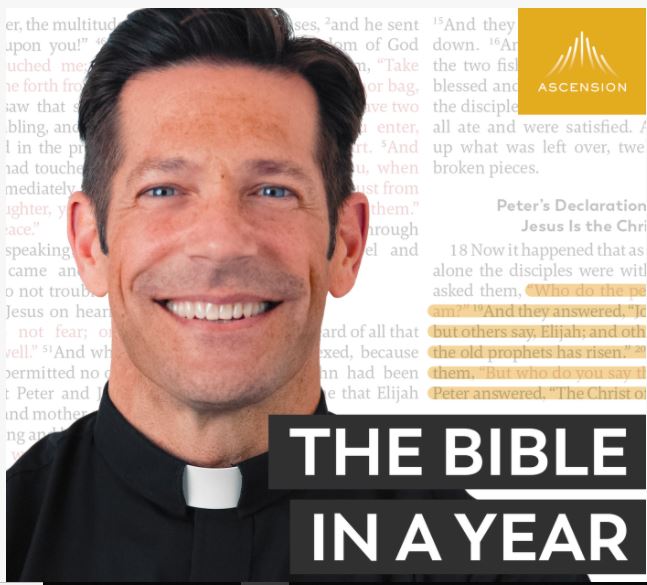
//Clergy Coaching Network//

416 N 2nd St, Albemarle NC 28001 | (704) 982-2910

//Clergy Coaching Network//

Mary’s virginity is not some kind of strained enclosure or an unnatural denial of the body. It is a choice that leads to a new kind of fruitfulness born of love that is human and inclusive and deeply spiritual, as well. St. Francis writes:
We are mothers of our Lord Jesus Christ when we carry him in our hearts and in our bodies, lovingly and with a pure and sincere conscience, and give birth to him through the working of his grace in us which should shine forth as an example to others. We are his spouses when we are wed to Jesus Christ by the Holy Spirit. We are his brothers and sisters when we do the will of his Father who is in heaven (“Letter to All the Faithful”).
— from the book Nourishing Love: A Franciscan Celebration of Mary
by Murray Bodo, OFM
//Franciscan Media//

Complete dedication to what he saw as God’s will for him dominated the life of John Baptist de La Salle. In 1950, Pope Pius XII named him patron of schoolteachers for his efforts in upgrading school instruction. As a young 17th-century Frenchman, John had everything going for him: scholarly bent, good looks, noble family background, money, refined upbringing. At the early age of 11, he received the tonsure and started preparation for the priesthood, to which he was ordained at 27. He seemed assured then of a life of dignified ease and a high position in the Church.
But God had other plans for John, which were gradually revealed to him in the next several years. During a chance meeting with Monsieur Adrien Nyel, he became interested in the creation of schools for poor boys in Rheims, where he was stationed. Though the work was extremely distasteful to him at first, he became more involved in working with the deprived youths.
Once convinced that this was his divinely appointed mission, John threw himself wholeheartedly into the work, left home and family, abandoned his position as canon at Rheims, gave away his fortune, and reduced himself to the level of the poor to whom he devoted his entire life.
The remainder of his life was closely entwined with the community of religious men he founded, the Brothers of the Christian School (also called Christian Brothers or De La Salle Brothers). This community grew rapidly and was successful in educating boys of poor families, using methods designed by John. It prepared teachers in the first training college for teachers and also set up homes and schools for young delinquents of wealthy families. The motivating element in all these endeavors was the desire to become a good Christian.
Yet even in his success, John did not escape experiencing many trials: heart-rending disappointment and defections among his disciples, bitter opposition from the secular schoolmasters who resented his new and fruitful methods, and persistent opposition from the Jansenists of his time, whose moral rigidity and pessimism about the human condition John resisted vehemently all his life.
Afflicted with asthma and rheumatism in his last years, he died at age 68 on Good Friday, and was canonized in 1900.
Reflection
Complete dedication to one’s calling by God, whatever it may be, is a rare quality. Jesus asks us to “love the Lord your God with all your heart, with all your soul, with all your mind, and with all your strength” (Mark 12:30b, emphasis added). Paul gives similar advice: “Whatever you do, do from the heart…” (Colossians 3:23).
Saint John Baptist de La Salle is the Patron Saint of:
Teachers
//Franciscan Media//

“Today, at this moment, as I perform the same act as Jesus by washing the feet of you twelve, we are all engaged in the act of brotherhood, and we are all saying: ‘We are diverse, we are different, we have different cultures and religions, but we are brothers and sisters and we want to live in peace.’ This is the act that I carry out with you. Each of us has a history on our shoulders, each of you has a history on your shoulders: so many crosses, so much pain, but also an open heart that wants brotherhood. —Pope Francis
Perhaps no action by Pope Francis has generated as much astonishment in the press (and perhaps in the Church!) as his washing the feet of prisoners—men, women, Christian, Muslim. A ritual that has at times become an honor for the elite once again returns to what Jesus intended: “As I have done, so you must do.” In his preaching on Holy Thursday, Pope Francis draws attention to the difference between the acts of Judas and Jesus at the Last Supper. The Holy Thursday liturgy is marked by the ritual gesture of the washing of the feet. We think of it as the institution of the Eucharist, and it is that as well. But the central action of service reminds us that our communion is more than a meal, more than nourishment for our bodies and souls. It’s the act of taking on the mission, the ministry, the very body of Christ. And it is a challenge to us to remain in communion not only with one another, but with all people of the world. Our unity is far from perfect, but today’s liturgy reminds us that if we are not always working toward that unity, then, like Judas, we are finding excuses to betray Christ’s ideals.
Today we enter into the holiest days of our Church year. We celebrate the passion, death, and resurrection of Jesus, the act that changed the very nature of human reality. Take some time to explore the way other religions similarly call their people to do loving acts of service for others. The more we know about those whose faith differs from ours, the more we will discover the common bonds that unite us.
— from the book The Hope of Lent: Daily Reflections from Pope Francis,
by Diane M. Houdek
//Franciscan Media//

The Bible in a Year (with Fr. Mike Schmitz)
Day 19: Joseph and his Brothers
Fr. Mike zeroes in on the dynamic between Joseph and his older brothers and shows us how the sin of envy is a distorted desire to be loved. Today’s readings are Genesis 37, Job 27-28, and Proverbs 3:25-27.
Click on link: